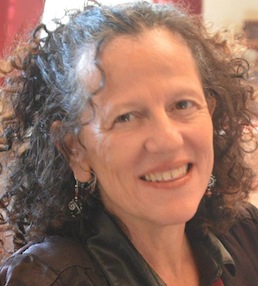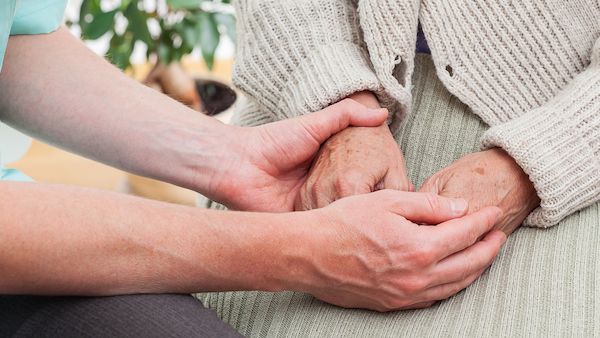What does a linguist have to say about the last words of the dying? Below is part 3 of my interview with Lisa Smartt, founder of the Final Words Project and author of the upcoming Words at the Threshold.
In Part 1 and Part 2 of our interview, she discussed what final speech reveals about the hereafter. Here Lisa talks about how the dying appear to “move between worlds” and how people can respond to the last words of their loved ones.
The last words of the dying are sometimes referred to as nonsense or the result of delirium. Is there actually something else going on?
There are many kinds of things people say at the end of life, including references to visions of deceased friends, animals and beautiful landscapes. Typically, these visions are positive and occur in patients who are lucid. Hallucinations, on the other hand, can be annoying, sometimes frightening and occur when the patient is not lucid.

Now, there actually was pencil and paper nearby. But no party. And all the names she wrote down were of people who were deceased. It was as if she was in two worlds at one time. There are many instances of this kind of language where the line is blurred between this world as we know it and another unseen world.
What still fascinates you about your research?
There is so much that blows me away. The more I look at the data, the more I am convinced that something exists beyond this world and that language is, indeed, one of the best ways to track it.
One thing that fascinates me is a little-researched phenomenon called terminal lucidity, or the “Sunset Day.” The term comes from the fact that as the sun sets over the horizon, there’s a point when the whole sky seems to be filled with light.
Similarly, a few hours or days before death, the dying may experience a sudden burst of energy, clarity and brightness in appearance. During this window of time, there’s increased lucidity in thinking and speaking. The dying may share words of reconciliation, ask for their favorite foods and often will give advice.
Read More: The Words of the Dying, Part 1
Many people I interviewed described how their loved ones, who were otherwise relatively non-communicative, emerged from their deeply internal, quiet state with words of kindness, reassurance or guidance. Several people also described a kind of glow or lightness around their beloved.
Any tips for loved ones on how to respond to the speech of the dying?
Loved ones and caregivers can do the following:
1) Assume that what you are witnessing is sacred.
Validate your loved one’s words and experiences. Avoid telling the dying that what they’re seeing or saying is wrong or “not real.” Repeat back what they say and let them know you have heard them. For example, if they say, “My modality is broken,” you can say, “Oh, your modality is broken. I would love to know more about that.”
2) Enter their world.
Imagine you are visiting a new country. Keep an open heart and mind. Record what you hear, see and feel in a final words journal, aka your private travelogue of that other place. You may be surprised later by the pearls of wisdom you find there.
3) Act like you’re learning a new language.
Since you are in a new country, learn its language. Study it. Practice it. Speak it. Listen for the symbols and metaphors that are meaningful to your beloved and then use them when you communicate. If they say, “I need my passport,” you can say, “Would you like me to help you find your passport?” And, when you hear things that sound nonsensical, tell yourself, “Oh, that’s how they speak in this country.”
4) Ask questions with authenticity and curiosity.
It’s okay to let the dying person know that you are confused and would love to know more about what he or she wants to communicate. You can always say, “Can you tell me more about that?”
5) Savor silence.
Sometimes it is better to just sit with your loved one when words don’t build bridges. There are indications that the dying may be much more tuned into nonverbal communication, much like the kind of communication we experience when we pray. Speak as you would in prayer to the person you love.
Read More: The Words of the Dying, Part 2
Have a question for Lisa about last words? Ask away in the comments below!






